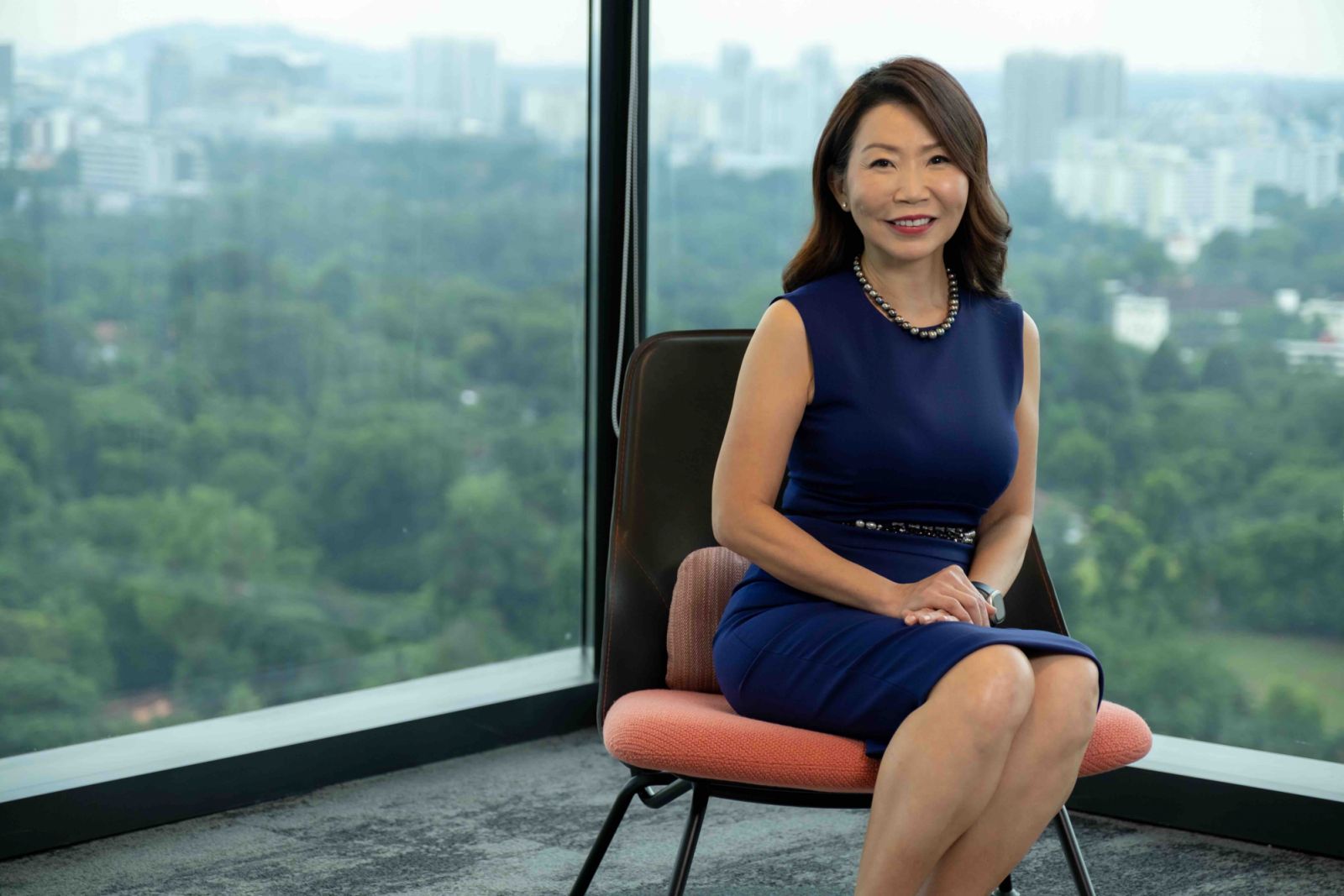Cisco’s ASEAN President shares her secrets to success, the benefits of ageing, and how networking can help women
When Bee Kheng Tay joined Cisco as managing director for Singapore in 2016, she knew where she wanted to be. ASEAN president was her goal, and she had a plan to get there. In 2021, she became the tech company’s first female ASEAN president.
Tay’s career wasn’t always so carefully thought out. But when her husband passed away just over a decade ago, she knew she needed to start planning. “I had two kids to take care of, and I needed to establish myself,” she says. “That’s where I planned my career and said, this is what I have to do, these are the contacts I want, and this is where I want my career to be.”
Tay had already been making her way up the career ladder in the tech world, however, the industry wasn’t where she initially saw herself. She had started her career in accounting and had aspirations to be a private banker before an offer from IBM proved too enticing to turn down and would be her first foray into technology.
“I see technology as something very suitable for me because it’s always changing. Technology is always expanding or evolving. It’s very dynamic and also quite spontaneous,” she says. In other words, it was the opposite of what Tay found to be a daily grind working as an auditor.
If you love learning, you love a dynamic environment, then [tech] is very suitable for you. Although there’s a lot of change and new technology, if you have the foundation, these changes are built on the foundation.
When Tay first joined the tech industry more than two decades ago, it was a very different place. As a woman she was in a stark minority, though this was not something that she paid much attention to, which she attributes to her “positive, optimistic” outlook. Yet she has seen changes, particularly in the way the industry now promotes diversity. “Thinking back to the beginning of my career, a lot of the senior management was male,” she says. Today of Cisco’s Executive Leadership Team, 42 percent is female, and of the six country managers Tay works with in her ASEAN role, four are women.
“Why is it important?” asks Tay. “One thing is that technology touches almost every sector. Technology touches almost every person. Females represent about 50 percent of the population. So, we need to have that diverse view.”
That being said, not enough women are joining the tech industry, despite the fact that the space is growing rapidly, and Tay sees plenty of opportunities for women in her world. She is a keen proponent of encouraging girls to pursue STEM, while Cisco also runs the Cisco Networking Academy to provide students with tech skills including cybersecurity and AI, so far training more than 1.3 million students in ASEAN since inception, of which 30 percent are females, and its Women Rock IT programme, which aims to encourage young people to consider STEM subjects.
One barrier to entry into the tech world for women is fear, Tay says. “They maybe feel that in the tech industry you need to be very technical. Secondly, there’s a preconceived notion that tech is for men. But the thing about the tech industry is it’s about learning. If you love learning, you love a dynamic environment, then it’s very suitable for you. Although there’s a lot of change and new technology, if you have the foundation, these changes are built on the foundation. There is never something that is so revolutionary that it is totally different. That’s something that people have to realise.”


